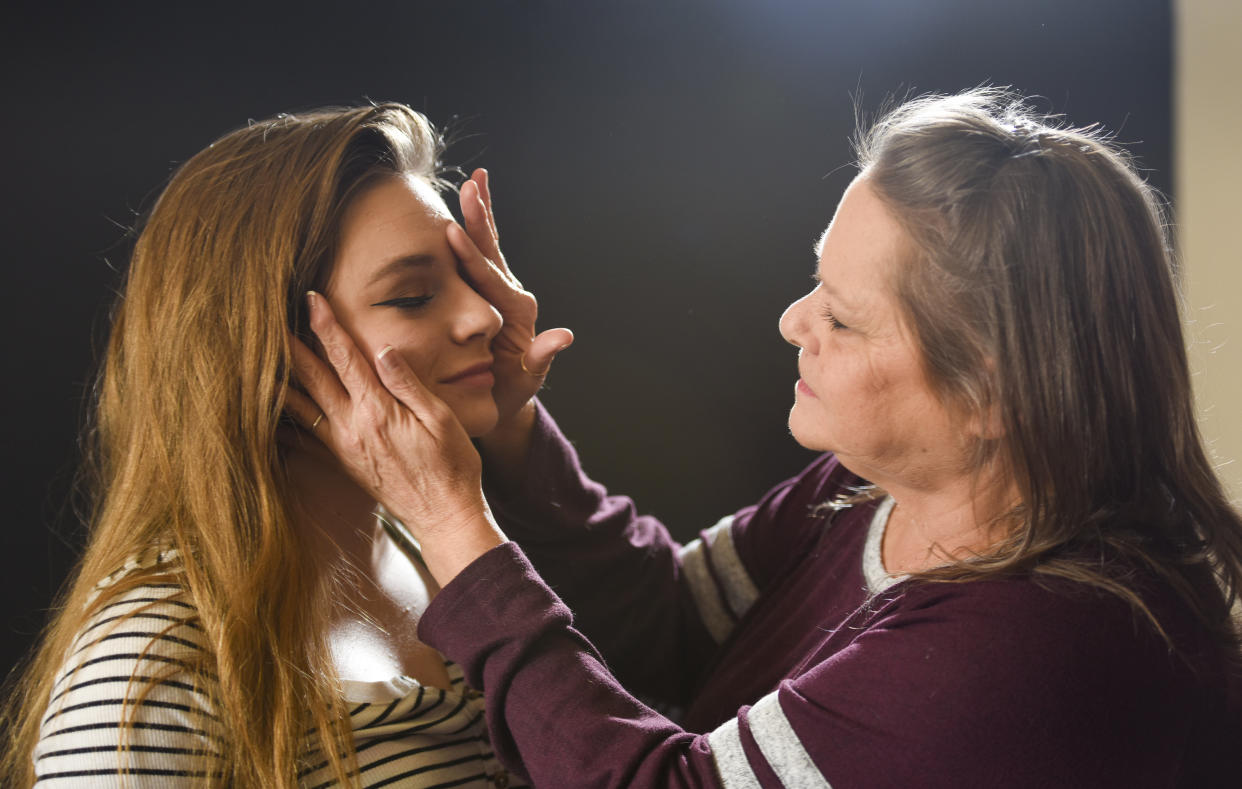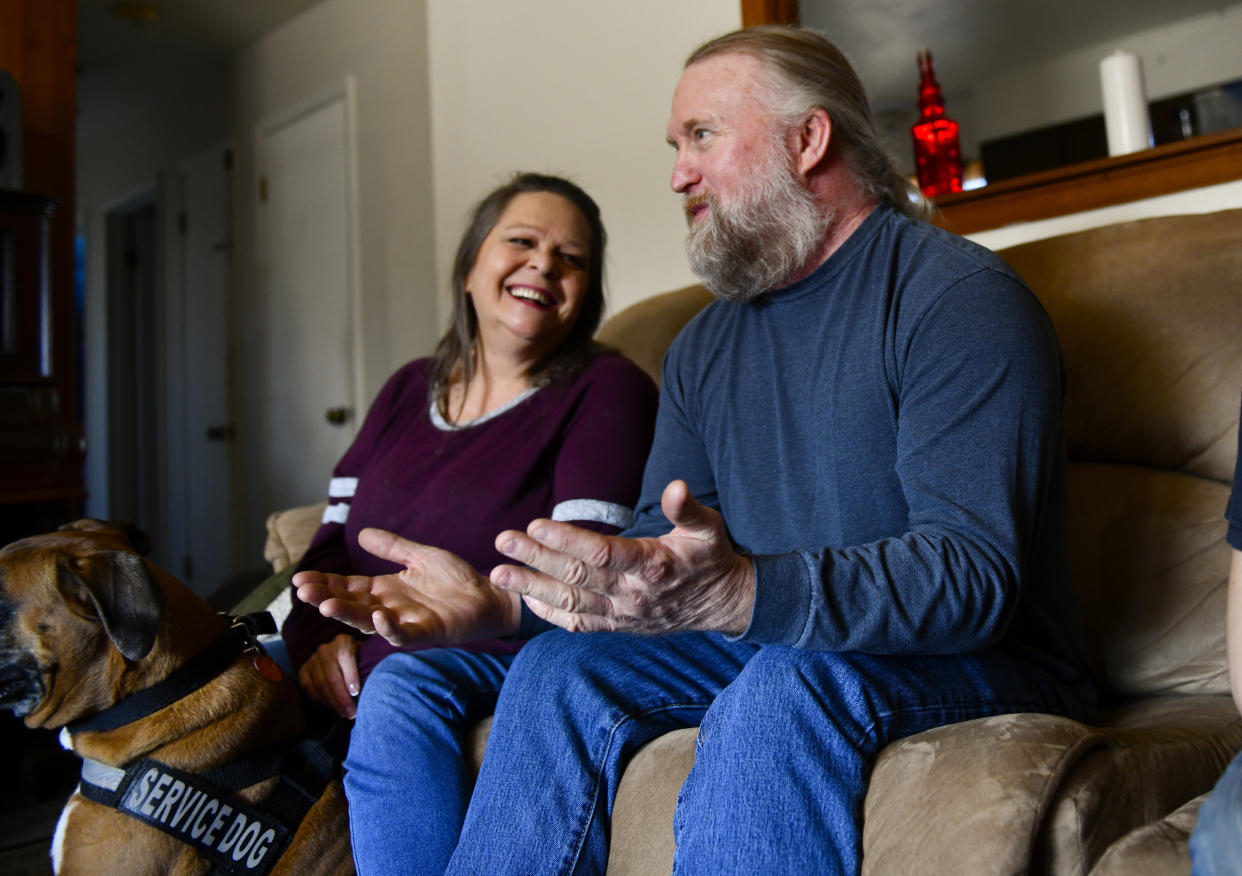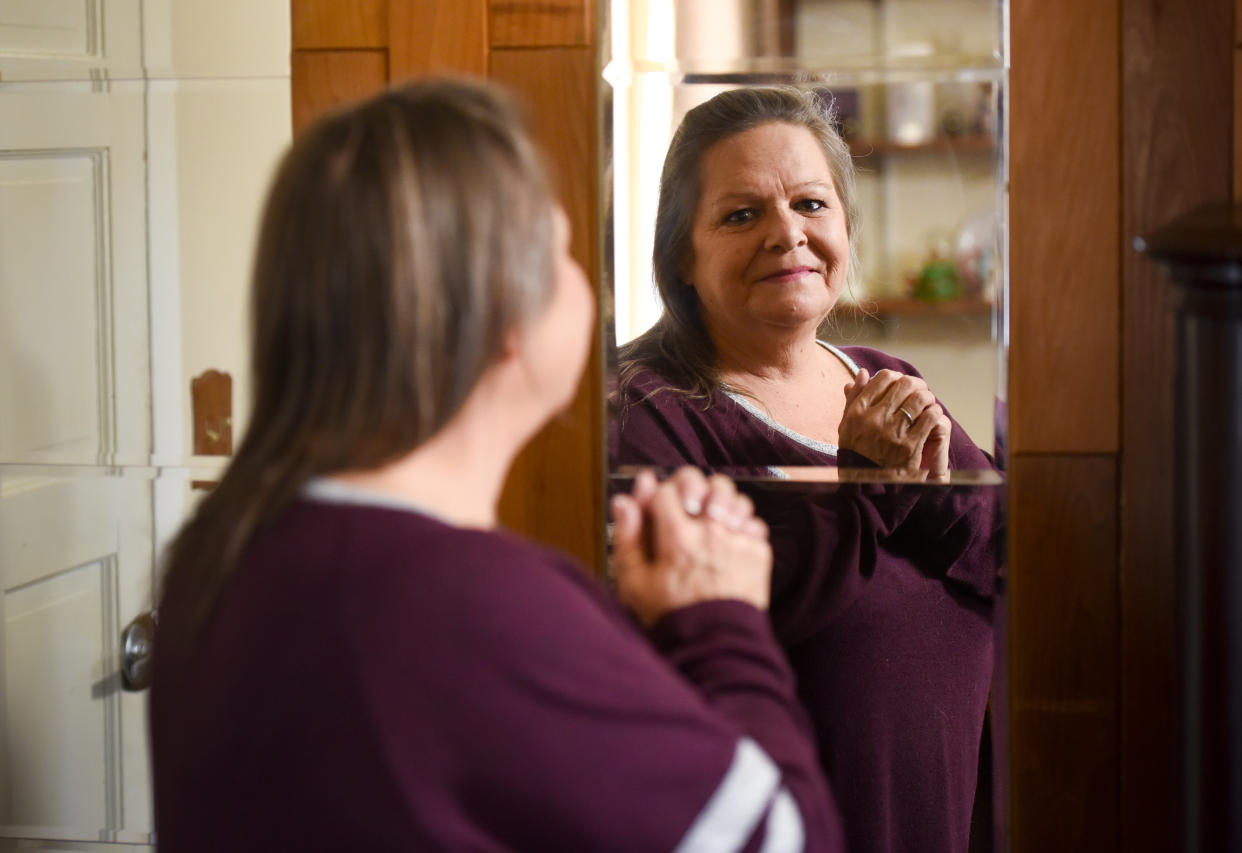'I was blind for 15 years - for no reason'
A woman who had been unable to see her family's faces for 15 years regained her sight, after doctors realised she had been misdiagnosed and her blindness was in fact caused by an easily operable condition.
Connie Parke, 59, is now able to watch her grandchildren play and knows what her adult daughter looks like, after cataract surgery restored her vision.
When she started losing her vision and eventually went blind, Parke was told it could be due to detached retinas or glaucoma.
But the diagnoses were wrong, and in 2018 she was told by an ophthalmologist she had cataracts, one of the most common adult vision issues.

The cataracts could easily be removed to restore her sight and after having the surgery, Parke now has 20/20 vision in both eyes.
The unit clerk from Aurora, Colorado, is keen to warn others to seek second opinions when it comes to their sight.
“People need to get rechecked because I was blind for 15 years probably for no reason," she explains. "They've been doing cataract surgeries for years.”
“The day the retina specialist told me he saw no diseased retinas, my husband and I instantly got upset.
“I had a little resentment towards the doctors that couldn’t find anything wrong or told me all these things were wrong, but the day they took the patch off my eye, and I could see, it took all that anger away.”
Parke first started noticing halos and prisms on lights when she was driving in 2003. She went to a doctor who told her she had glaucoma.
“Three weeks later, I had lost even more sight and peripheral vision,” she continues.
Read more: What is 'mask eye' and how can you prevent it?

It was then Parke was given the shocking news that her loss of vision was inoperable and she would be blind.
“I didn't believe it until I started hurting myself,” she explains.
“I was getting lost, falling down stairs, falling up stairs and setting myself and my house on fire.
“Within five and a half months I had lost over 85% of my sight.”
Determined not to let her blindness hold her back, Parke relocated from Montana to Denver, Colorado, in 2004, to attend blind school.
She also continued doing things she had loved before, such as ice skating, kayaking, camping and attending sporting events and concerts.
“I just lived life as much as I possibly could the way I did before I lost my sight,” she explains.
Watch: Emotional moment blind man sees for the the first time in nearly 20 years.
But there were some things she found more difficult to adjust to.
“I wasn't really sure to how to use a cane and I would keep walking into bushes,” she explains.
“I had to have somebody with me when I cooked to make sure the food looked okay.
“I couldn’t vacuum and had to sweep in a pattern.”
In 2018, Connie was referred to the UCHealth Sue Anschutz-Rodgers Eye Center and the ophthalmologist told her she was not in fact suffering from a detached retina, but very dense cataracts.
Surgery was suggested and on 12 November, she had the procedure to remove the cataract on her right eye.
“When they took my patch off the next day the first thing I saw was the nurse’s eyebrow, eyelashes and pupil and I started crying,” Parke explains.
“She had me read an eye chart and the first line I read was 20/20.
“I think the doctor was as surprised as me because he had made it perfectly clear he wasn’t promising me measurable vision."
Read more: This '20-20-20' rule could help protect your eyesight during the pandemic

After having surgery on her other eye, Parke now has 20/20 vision in both eyes.
It means she has been able to see her eldest grandchild for the first time since she was an infant, and her other eight grandkids for the first time ever.
“The eldest doesn't look anything like she looked when she was three weeks old,” Parke explains.
She's also been able to retire her guide dog Talulah Mae and now has a job as a unit clerk.
But it's doing regular everyday things that most people take for granted that Parke really appreciates.
“People think it's tedious to watch grass grow, but when you haven't seen a blade of grass in years, you watch the grass grow,” she explains.
One more difficult side effect, however, has been recognising her own reflection.
“The hardest thing was looking in the mirror, because I never thought about myself ageing,” she explains.
“I had no idea who that was looking back at me.”
Read more: Rochelle Humes admits parenting guilt over not spotting daughter's sight problem

Seeing her husband, Robert, again after all this time has been very special.
“He’s still the most handsome man ever and I'm still completely in love with him,” she says.
Now, she’s excited to relive the holidays the couple had been on when she was blind.
“He took me to the Oregon coast, Yellowstone and all through the Rockies," she explains. "Now I just want to go see it again.
“Well, I want to go see it.”
Additional reporting SWNS.
Watch: How To Raise An Olympian: Tammara Thibeault



